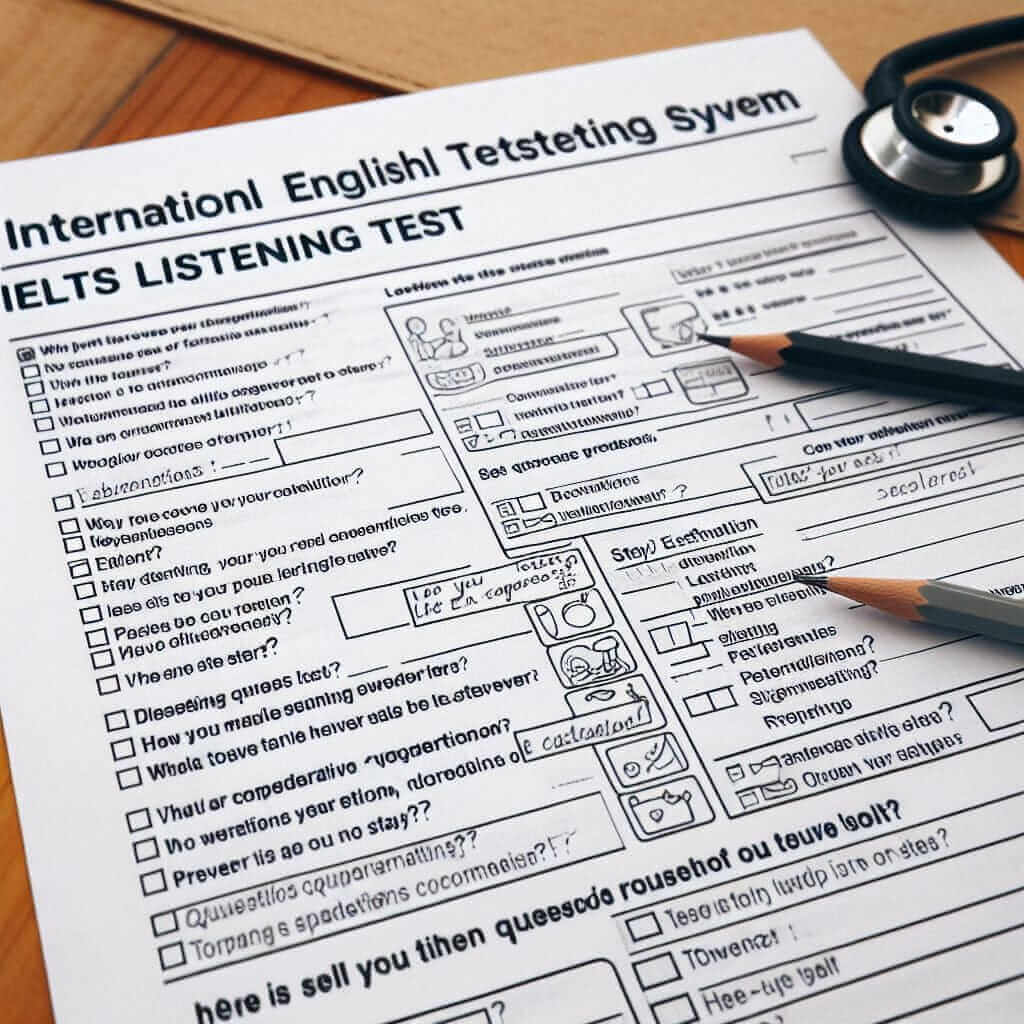Mastering the IELTS Listening test requires more than just understanding English. It demands a strategic approach to each question type and consistent practice with authentic materials. This comprehensive guide, crafted from over 20 years of experience teaching IELTS, will delve into proven techniques to help you conquer every form of IELTS Listening.
Understanding the IELTS Listening Test Format
Before diving into strategies, it’s crucial to familiarize yourself with the test structure. The IELTS Listening test is 30 minutes long and consists of four sections:
- Section 1: A conversation between two people in an everyday social context.
- Section 2: A monologue or conversation related to an everyday situation.
- Section 3: A conversation between up to four people in an educational or training context.
- Section 4: A monologue on an academic topic.
Each section features 10 questions, totaling 40 questions in the entire test. The difficulty level generally increases with each section.
Essential Tips to Train for IELTS Listening
1. Active Listening: Your Most Powerful Tool
- Focus on Keywords: Train yourself to identify key information like names, dates, numbers, and keywords related to the topic.
- Predict Content: Before each section starts, use the time given to read the questions and predict the type of information you need to listen for.
- Pay Attention to Signposting Language: Speakers often use phrases like “Firstly,” “Moving on to,” or “In conclusion” to guide you through the information.
- Don’t Get Stuck: If you miss an answer, don’t dwell on it. Move on to the next question and try to catch up.
2. Mastering Different Question Types
The IELTS Listening test employs a variety of question formats, each requiring a specific approach:
- Multiple Choice: Read all options carefully before listening and eliminate unlikely answers as you listen.
- Sentence Completion: Pay close attention to grammatical accuracy and ensure your answers fit logically and grammatically within the sentence.
- Form/Note/Table/Flow-Chart/Summary Completion: Scan the format carefully to understand what information is required and where it should be placed.
- Short-Answer Questions: Be mindful of word limits and answer only with the required information.
- Matching: These often involve matching a list of statements or options to a set of speakers or scenarios. Listen carefully for specific details mentioned by each speaker.
- Plan/Map/Diagram Labelling: Familiarize yourself with the visual provided and listen for directions or descriptions to label the elements correctly.
3. Practice Makes Perfect: Utilize Authentic Materials
- Past Papers: Practicing with past IELTS papers is crucial to understand the exam pattern and difficulty level.
- Podcasts and Radio: Listening to podcasts or radio shows on diverse topics improves your general listening comprehension and vocabulary.
- Movies and TV Shows: While not specifically designed for IELTS, watching English-language shows with subtitles can help you get accustomed to different accents and everyday conversations.
4. Focus on Vocabulary and Grammar
- Expand Your Vocabulary: Make a conscious effort to learn new words and phrases related to common IELTS themes like education, environment, technology, and social trends.
- Improve Your Grammar: A good grasp of grammar is essential for understanding complex sentences and answering questions accurately.
Example from an IELTS Listening Test
Let’s analyze an example from a Section 1 conversation:
You will hear a conversation between a travel agent and a customer. Complete the form below.
Customer Name:
Destination:
Departure Date: _____
Audio Script:
Travel Agent: Good morning, sir. How can I assist you today?
Customer: Hello, I’d like to book a flight to Rome. My name is John Smith.
Travel Agent: Certainly, Mr. Smith. And when are you looking to travel?
Customer: I’d like to depart on the 15th of next month.
<
Answers:
- Customer Name: John Smith
- Destination: Rome
- Departure Date: 15th (of next month)
Analysis:
This simple example highlights the importance of listening for specific details like names, places, and dates. By paying close attention, you can accurately complete the form.
Final Tips for Success
- Time Management: Practice under timed conditions to improve your speed and accuracy.
- Develop a Note-Taking System: Find a note-taking method that works for you to jot down keywords and key information.
- Stay Calm and Focused: Avoid getting distracted during the test. Take deep breaths and maintain your concentration.
Conclusion
Conquering the IELTS Listening test requires a combination of strategic preparation, consistent practice, and a deep understanding of the test format. By following these tips and dedicating yourself to regular practice, you’ll be well-equipped to achieve your desired score. Good luck!